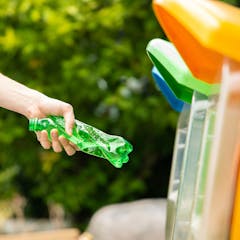
Articles on Behavioral science
Displaying 1 - 20 of 36 articles

A researcher explains how couples can create a sense of ‘our money’ while keeping a sense of financial autonomy.

The idea of gently tweaking our behaviour still makes political sense.

How much does human behavior influence climate change? Can it be changed, and how? In June, climate change experts and behavioral scientists came together to answer these important questions.

In a study with people as young as 4 years old, participants underestimated how much others would appreciate their good deeds.

Mirrors, selfies and knowing other people are looking at you all cause people to think of themselves as objects. Video calls are all three in one and are likely increasing the harms of self-objectification.

Governments and companies are using incentives in hopes of getting more Americans to get a COVID-19 shot. A behavioral economist explains how they work.

‘Sex addiction’ isn’t a diagnosable disorder, but the turmoil religious men feel over the disconnect between their sexual values and behavior can lead to real psychological distress.

Policymakers need to figure out ways to sustain the behaviors that are helping flatten the curve as cities begin to end their lockdowns.

Policymakers need to figure out ways to sustain the behaviors that are helping flatten the curve as cities begin to end their lockdowns.

Behavioral economists explain how widespread use of face masks, hand sanitizer and other preventive measures could counterintuitively encourage riskier behaviors around coronavirus.

The flu shot is a bargain – and people are more likely to get it if they know that.

Americans recycle only about one-third of the solid waste we generate. A behavioral scientist argues that with the right motivators, we could do more.

Some Californians want to ban people from living in wildfire-prone areas. Behavioral economics offers a less heavy-handed approach to reducing the costs and risks.

New research on consumer behavior shows that we tend to match some types of choices the people around us make, but not others.

Uber’s IPO will value the company at more than $80 billion, yet the data it collects on its users may be worth even more – and creates the potential for dangerous manipulation.

Software makers including Apple have been creating apps aimed at limiting how much time we spend using our smartphones. A behavioral scientist explains how – and whether – they work.

Americans are spending almost three and a half hours on their phones and tablets every day, twice the amount just five years ago. A behavioral scientist offers a few tips on how to take control.

Ninety percent of psychology studies come from countries representing less than 15 percent of the world’s population. Researchers are realizing that universalizing those findings might not make sense.

Many dog owners have tales of their faithful companion licking away their tears. Researchers investigated whether, beyond being comforting, canines would actually take action to help an upset owner.

It’s a psychological quirk that when something becomes rarer, people may spot it in more places than ever. What is the ‘concept creep’ that lets context change how we categorize the world around us?





